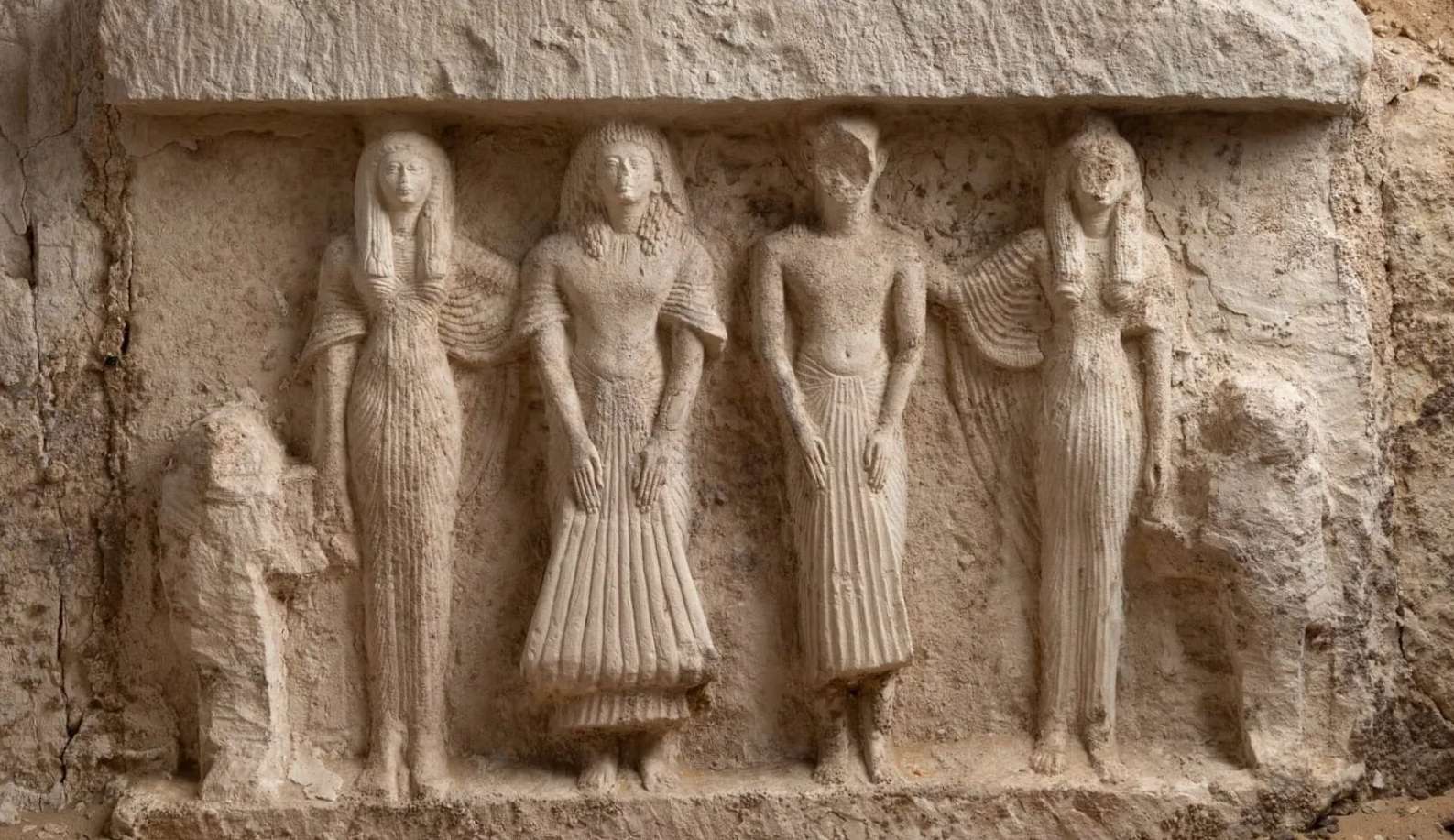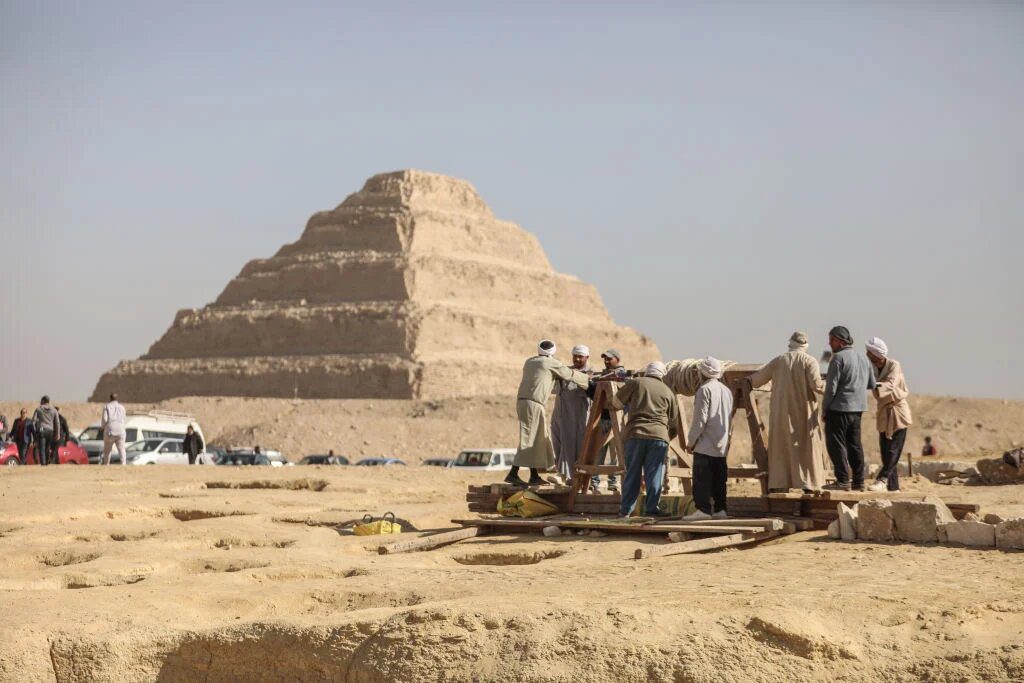
Discoveries in Egypt reveal 4,000-year-old tombs and mummification workshops
Follow Us @
Discoveries in Egypt reveal 4,000-year-old tombs and mummification workshops
Archaeologists have discovered new tombs and mummification workshops in Egypt that are more than 4,000 years old. Excavations were carried out at the Saqqara necropolis in the city of Giza. It is estimated that this is the largest center ever found in the region and the discoveries were evaluated by the director of the Council of Antiquities of Egypt, Mostafa Waziry.
During the excavation, two statues were found, in addition to the two mummification workshops. According to experts, one of the workshops was used for embalming people, while the other had the same purpose, but was intended for animals. This discovery is considered a historical rarity, dating to approximately 300 years before Christ, according to Waziry.
Furthermore, the explorations also led to another major discovery: two small tombs that are around 4,400 years old, belonging to priests. These priests were responsible for religious rituals and ceremonies in ancient cultures, playing a crucial role in guiding the spiritual life of societies at the time.

Researchers at the Saqqara Pyramid/Social Networks/Reproduction
How important is the discovery?
Historical discoveries are of significant importance in expanding our knowledge of the human past and our ancestors. They provide new insights into events, cultures and societies that have shaped the world we live in today. By bringing concrete evidence, these discoveries can challenge previous interpretations and fill in gaps in our historical understanding. In addition, they arouse social interest, strengthen our connection with cultural heritage and allow us to better understand the past. In summary, historical discoveries play an essential role in building a more complete and cohesive narrative of human history. Not only do they help our understanding of the past, they also have a significant impact on the present and future. By uncovering new information about ancient civilizations, these and field finds provide a solid foundation for academic research, archaeological studies, and scientific advances.
Featured photo: Tomb in Egypt/Egypt Ministry of Tourism and Antiquities/Reproduction
Discoveries in Egypt reveal 4,000-year-old tombs and mummification workshops
Follow AFRILATEST on Google News and receive alerts for the main news about celebrities, soap operas, series, entertainment and more!
SHARE POST AND EARN REWARDS:
Join our Audience reward campaign and make money reading articles, shares, likes and comment >> Join reward Program
FIRST TIME REACTIONS:
Be the first to leave us a comment, down the comment section. click allow to follow this topic and get firsthand daily updates.
JOIN US ON OUR SOCIAL MEDIA: << FACEBOOK >> | << WHATSAPP >> | << TELEGRAM >> | << TWITTER >
#Discoveries #Egypt #reveal #4000yearold #tombs #mummification #workshops
-

 Fashion3 months ago
Fashion3 months agoVogue Arabia cover welcomes Salma Hayek in an interview with Penélope Cruz
-

 Football3 months ago
Football3 months agoVAR points out Diego Costa's offense against the fourth referee
-

 USA today entertainment3 months ago
USA today entertainment3 months agoBeyonce with the single “Break My Soul” leads on Spotify Brazil
-

 Health and Fitness3 months ago
Health and Fitness3 months agoVaccine against the reappearance of skin cancer enters final testing phase
-

 USA today entertainment3 months ago
USA today entertainment3 months agoSZA, Future and DJ Khaled come together in collaboration
-

 News3 months ago
News3 months agoParents of former player Waleswska are pressured by widower to pay rent for the house where they live
-

 USA today entertainment3 months ago
USA today entertainment3 months agoLarissa Luz and Linn da Quebrada enchant at the Multishow Awards with a tribute to Elza Soares.
-

 Good News TV series3 months ago
Good News TV series3 months agoThe shocking reason behind the decision not to show dead characters in The Last Of Us episode revealed

































